
The current global pandemic has affected us all, each in a variety of ways. Some people had plans of travel and taking time for themselves. You may have been one of those people, and you may have coincidentally been looking into Korea for these plans of experiencing a new culture as well as making improvements upon yourself simultaneously. Korea has been one of the most secure countries since the beginning of Coronavirus due to its quick response rates and previous plans it had explicitly created for the next pandemic. However, despite its preemptive programs and best efforts, COVID-19 has not been able to be wiped entirely. Additionally, to keep the virus under control, South Korea has had to create many restrictive regulations such as:
- Holding gatherings under four people.
- Establishments such as bars and restaurants all closing by 10 PM (though delivery is still available afterward).
- Fines for anyone caught not wearing a mask.
- Social distancing of 2 meters (particularly in schools, restaurants, cafes, etc.).
- Whenever there is a rise in cases or a local one (such as in a school), a temporary online ‘lifestyle’ is required with self-quarantine and an immediate Corona test.
- Pop-up testing centers around the country, particularly in the cities, to prevent infected people from coming in contact with others and overloading the hospitals.
- A mandatory 2-week quarantine for anyone coming back into Korea (regardless of nationality) at home or in a government facility if visiting (paid for by yourself).
These rules will fluctuate on specifics depending on rising or decreasing cases and clusters found in specific locations, amongst other things. Therefore, it’s recommended to check official government sites such as those referenced in this article for the most current updates. Not following these rules could result in heavy fines or something more serious, such as being banned or deported. As of now, if you are planning to come to Korea this year, some things to expect include:
- Temperature screening and filling out a Health Questionnaire at the airport.
- 2-week mandatory quarantine in your Korean home (for nationals or foreign national residents) or a government facility for short-term visitors or if a national’s home is considered ‘unfit,’ that will have to be paid for by yourself.
- Generally, costs about KRW 1,680,000 per person (~$1,600).
- Housing will be random and cannot be changed nor chosen.
- You will be escorted from the airport to your 14-day housing.
- Must have a negative result on the COVID-19 test 72 hours prior to coming to Korea.
- Re-testing for Coronavirus within three days of your arrival, during quarantine, regardless of having been tested before arriving in Korea.
- Visitors will be tested automatically at their quarantine facility.
- Residents must go by foot to the nearest public test center.
- Usage of public transportation is not allowed.
- Downloading an app ‘Self Diagnosis’ and updating it twice daily with any symptoms and a daily call from the KCDC.

If, for some reason, you do test positive once you are in Korea, you will be responsible for some, if not the whole, cost of expenses related to Covid-19.
- Some costs:
- If you are visiting short-term, The Government of the Republic of Korea will cover costs related to (a) test and (b) the use of isolation facility, whereas individuals will bear costs related to (a) treatment and (b) food, among others.
- Long-term visitors (Alien Registration Cardholders) will have similar payments as short-term. However, due to the mandatory health coverage that long-term residents must-have, the individual cost will be decreased to about 20% of what a short-term resident would pay individually.
- Full costs:
- If you contracted the virus due to breaking quarantine or the regulations stated previously, submitting a false PCR test, etc., you would be 100% responsible for all costs.
Due to the potential costs you may have to finance, it is seriously advised to make sure you are insured before making your trip to Korea. If, when coming to Korea, you do not comply with the quarantine guidelines, you may face up to 1 year of imprisonment or a KRW 10 million fine for violating the Quarantine Act and Infectious Disease Control and Prevention Act. In addition, according to the Immigration Act, foreign nationals violating the regulations may face deportation or a ban on entry into Korea.

At this point, you may have noticed there is a category labeled ‘those exempt from quarantine.’ Therefore, you may be asking yourself, ‘how can I be exempted from quarantine?’ Currently, the only people who may be exempted from quarantine are people who hold an A1 (Diplomat) or an A2 (Government official) visa or a Quarantine Exemption Certificate that the Korean Embassy or Consulate-General issued prior to the entry. However, recently, the Korean government announced that quarantine regulations are waived as of May 5th, 2021, for those who are fully vaccinated in Korea.
In conclusion, if Korea had crossed your mind as an option for traveling for a vacation or for receiving some of the world’s best treatments and procedures for a reasonable price, the general guidelines, as well as quarantine regulations, should be something you consider. As stated earlier, it is essential for you to check all current rules prior to your trip in case anything on this list has changed, mainly as Korea works on a region-by-region regulation system, not as a whole country. Suppose you feel comfortable financially and time-wise with what is necessary to travel to Korea currently. In that case, it’s advised to reach out to guide medical companies that are eager to help make your experience as painless as possible. They handle everything from airport pick-up, housing, translation to post-treatment care and making sure you felt confident and comfortable throughout the whole process. They also often group all these things into a package deal to make it as painless and affordable as possible. Have safe travels!

